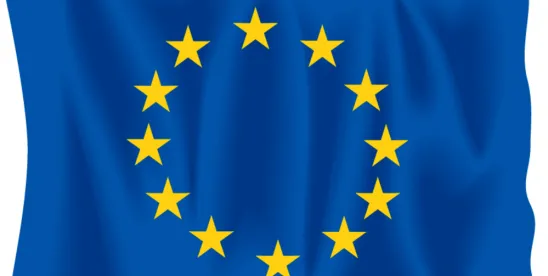On January 20, 2025, the European Union (EU) has filed a second request for consultations at the World Trade Organization (WTO) aiming to remove allegedly “unfair and illegal trade practices by China in the sphere of intellectual property.” Specifically, in DS632, the EU states that Chinese courts have set worldwide royalty rates for standard essential patents (SEPs) without consent of both parties. The Request cites a November 28, 2023 decision setting worldwide licensing rates in the Nokia/Oppo case. Not mentioned in the Request was that China also provided itself with a discount by setting Chinese royalty rates lower than U.S. royalty rates.

This is the second EU request for consultations regarding IP rights. On December 7, 2022 the European Union (EU) requested the World Trade Organization (WTO) to establish a panel to examine China’s anti-suit injunctions (ASIs) in patent cases. Chinese courts have issued these injunctions blocking patent holders from enforcing their foreign patent rights outside of China (i.e., in Europe and Japan) with extensive daily fines for violators. The EU initiated the case on February 18, 2022 by making a Request for Consultations with China. Those consultations were held with China on April 6, 7, and 12, 2022 but failed to settle the dispute.
The Request also states that China violated transparency requirements by not providing a copy of the decision (a redacted copy of which I provide here).
Excerpts from the Request follow. The full Request is available here.
According to China’s law, Chinese courts have the authority to determine, without the consent of both parties, worldwide licensing conditions, and in particular royalty rates, for portfolios of standard essential patents (SEPs) which include non-Chinese SEPs. In accordance with China’s law, a legally effective decision determining such conditions is binding on both parties and is enforceable in China including with respect to the non-Chinese SEPs.
Chinese courts have interpreted and applied the law in this manner. On 28 November 2023, China’s Chongqing First Intermediate People’s Court took a decision against the objections of the patent owner setting worldwide licensing conditions, including royalty rates, for SEPs.1 The Court set the rates Chinese phone manufacturer OPPO has to pay worldwide for using Nokia’s patented technology in 2G, 3G, 4G and 5G “smart terminal products”, such as mobile phones. Based on China’s law, other courts can take decisions setting licensing conditions without the consent of both parties, notably the patent owner, for worldwide licences covering non-Chinese SEPs, which are binding on both parties and enforceable in China. There are substantiated indications that other courts accepted similar requests to decide worldwide licensing conditions.
Having regard to the above, the measure at issue in this consultations’ request comports the legal instruments giving Chinese courts the authority to take, without the consent of both parties, decisions setting the conditions for worldwide licences for SEPs, which are binding on both parties and enforceable in China, including with respect to non-Chinese SEPs. This measure appears to curtail the ability of the parties, SEP owners and implementers, to enforce their rights and ensure the respect of obligations with respect to non-Chinese SEPs in the courts of the jurisdictions where the non-Chinese patents were granted and curtails the ability of the courts of the jurisdictions where the non-Chinese patents were granted to adjudicate actions relating to those patents in the respective jurisdictions.
…
On 20 December 2023, the European Union sent an official request for information pursuant to Article 63.3, second sentence, of the TRIPS Agreement requesting China to supply the Chongqing First Intermediate People’s Court Civil Judgment in OPPO v Nokia of 22 November 2023 (sic), which it stated it had reason to believe affected its rights under the TRIPS Agreement. That specific judicial decision was in the area of intellectual property rights as it concerned the conditions for a patent licence, including royalty rates. China’s response appears to be inconsistent with its obligations under Article 63.3, second sentence, of the TRIPS Agreement.



 />i
/>i
